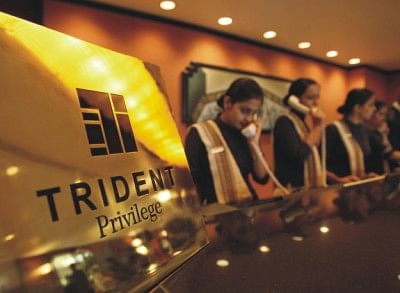Interpol chief in India for Mumbai attacks probe

Indian receptionists answer telephones at the front desk of the Trident Hotel in Mumbai yesterday. Final preparations were taking place in Mumbai to prepare the two luxury hotels stormed by militants for reopening, amid tight security and pledges to return to business as usual. Photo: AFP
The chief of global police agency Interpol met Indian officials yesterday and pledged assistance in a probe into last month's attacks in Mumbai by gunmen whom India insists came from Pakistan.
Ronald Noble met Home Minister P. Chidambaram and promised help in securing details of the 10 gunmen who attacked two luxury hotels, a rail station and a Jewish cultural centre on 26 November in Mumbai, officials said.
Noble told Chidambaram Interpol was comparing DNA profiles and other identifications of the attackers such as photographs and fingerprints with its global database of fugitives, home ministry officials said.
The attacks on India's financial capital left 172 dead, including nine of the gunmen. One of the attackers was caught and is in police custody.
The Interpol secretary general also met the head of India's Central Bureau of Investigations (CBI).
"India and its CBI have much experience in using Interpol tools and services to track down terrorist fugitives," Noble said in a statement.
"India understands that it cannot be expected to find the answers to this incident without the support of the global law enforcement community, and we will help ensure that this happens," Noble added.
Prime Minister Manmohan Singh meanwhile urged Indian security agencies to use modern technology to try to prevent similar attacks.
"The role of technology in supporting our counter-terrorism and internal security efforts is not adequately appreciated," Singh said Saturday in New Delhi.
"Other countries have used modern technology in their security structures with great effect. It acts not only as a force multiplier but can also provide solutions to human problems relating to command, coordination and communication," he added.
India says the gunmen were trained and equipped by the Pakistan-based militant group Laskhar-e-Taiba and travelled to Mumbai on a hijacked trawler from the Pakistani city of Karachi. The group has denied any involvement.
New Delhi also unveiled plans to install radar units along India's coasts to reinforce maritime surveillance, the Press Trust of India said.
The home ministry separately said the coast guard was setting up nine additional shoreline stations to improve security, especially in the Arabian Sea, which divides India and Pakistan.
"We are taking several steps to enhance our sea-and-air surveillance and interceptions abilities with the help of more aircraft, patrol vessels and warships," a senior coast guard official said.
Defence Minister AK Antony heading a high-level meeting Saturday gave the green light for the purchase of an unspecified number of interceptor ships and latest hardware to shore up coastal security, ministry officials said.
"The government also asked the coast guard to augment its fleet of 70 medium and big ships with vessels leased from the global market," one official told AFP, and added the acquisitions could cost more than one billion dollars.

 For all latest news, follow The Daily Star's Google News channel.
For all latest news, follow The Daily Star's Google News channel. 



Comments